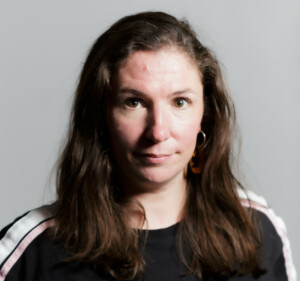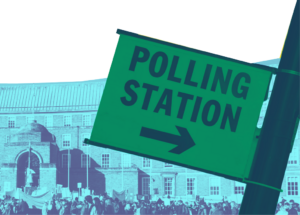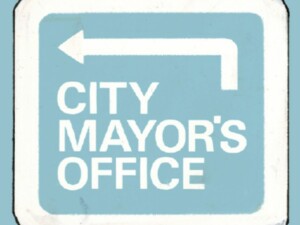Why Bristol’s Democracy Now Needs a ‘One City’ Vision Emma Harvey

Share this
Emma Harvey is CEO of Trinity Community Arts, a charity formed to manage the Trinity Centre, Bristol, a grade II* listed building, community arts centre and independent live music venue. She has been with Trinity since 2007 and has a background in the charity sector and in visual arts. She is interested in localism, and developing inclusive spaces, platforms and technologies.
This article is part of Bristol Ideas’ Referendum 2022 debate which looks at all aspects of city governance as part of ongoing work on democracy and the May 2022 referendum.
Whether you live somewhere governed by a committee, cabinet and leader, mayor, or a hybrid of these systems, the ways you as a citizen are able to influence decisions made by a bunch of folk who probably don’t look or sound much like you can feel like a relentless, often futile, exercise.
Writing to officers, making statements in cabinet, producing reports and sending them to leaders, councillors and MPs. Rocking up to surgeries and hustings and sharpening your elbows to get yourself into ‘the room’. Politicking is less of an art than it is persistence and that type of triathlon of engagement just doesn’t work for anyone with other competing pressures on their time. We want to think that because something is a good idea, it’ll naturally take hold, or that just because we’re acting honourably and honestly, the cause will be enough for us to be seen as credible.
It feels a bit like that scene in Pretty Woman, where saleswomen spurn Vivian because she just doesn’t fit. It’s a trope we’re all familiar with, likely made more memorable because of how it resonates so much, especially if who we are jars with those who traditionally hold power over us.
Our political system hasn’t been designed by – or even with – us, so is it any wonder when we take part we feel like we don’t understand, don’t fit, that we’re out of our depth or just plain stupid? Power relies on imposter syndrome to keep others out. The performative nature is especially problematic for anyone not used to public speaking.
To get anywhere, you have to be so confident in your conviction that you’re willing to go through all that hassle, disappointment and humiliation in the pursuit of what you believe is right. Is it any wonder then that those who are most able to fare well in this landscape tend to be those whose confidence can be bolstered by their circumstances shaped from birth?
This power play happens continually in local politics. We like to believe things will be different because those who get into it care passionately about their communities, but caring deeply and saying you want to make things fair is not enough. As cultural innovator Verna Myers says, ‘diversity is being invited to the party; inclusion is being asked to dance.’
Providing all Bristol residents with a more equal say was the main message from advocates of a committee governance system for Bristol and led to us voting as a city to introduce this governance system in 2024. But the challenges we face across wards and communities are not equal, in a city where 16 per cent of people aren’t white British and local governments notoriously fail at the first test of democracy – to push representation beyond the usual suspects.
If men in Lawrence Hill have the lowest life expectancy in the city, then I think what’s fair is that their representation is given greater weight in certain matters than, say, their counterparts living in Cotham, where you can expect to have an average life expectancy of at least ten years longer. Equal does not mean equitable.
The rights of Black people and poor people in Bristol haven’t been furthered because of any governance system, but because of the actions of activists and community leaders who pushed for change. Change very rarely comes from consensus; it’s almost always about minority influence. If we all already thought that way, then nothing would need to change.
So how do we get it right in a city like Bristol? The city has opted for change and this means that now the real work starts. How the new system takes shape must be part of a wider city conversation. Like Brexit, the Bristol referendum process was all about pitting two opposing camps against one another and we have to leave all that behind and find a way to coalesce around a common (dare I say) one city vision.
If we’re serious about increasing participation then everyone who’s been part of this process leading up to the Bristol referendum needs to roll up their sleeves and take responsibility for developing the spaces and mechanisms to enable this to happen. Bristol’s Citizen’s Assembly model and Bristol Youth Elections are just two ways regular folk can get involved and have their say in shaping a committee system for Bristol. I would hope that these aren’t discounted just because they’re also systems set up by the city’s current leadership.
Democracy, after all, is a journey, not a destination; of persistence, patience and, yes, compromise, to build something new from our diverse perspectives and, in the process, find and weave together those fine threads that give us commonality. Because when it comes to community, there is no them, only us.
Find out more about Bristol Ideas’ Referendum 2022 debate. Copyright of articles remains with the authors.


